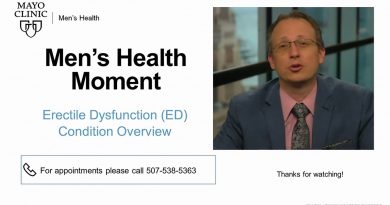How to Prevent Candida Albicans
Candida albicans is the most common condition I find in the GUT and can cause an array of symptoms. It is a single cell fungus that occurs in moist areas of the body. You have naturally occurring good fungi living in you that protect the bowel wall and help you digest food while you provide them with warmth and food. Candida is the naturally occurring fungi that has overgrown within your gut and causes intestinal problems. You need to keep your gut bacteria balanced but sometimes it becomes unbalanced and the causes of this are:
– Western diet (high in sugar and processed foods)
– Prolonged stress
– Chlorinated water
– Prolonged use of antibiotics
– The contraceptive pill and HRT
When the delicate balance of intestinal flora gets disrupted the immune system weakens, so that it is less able to cope with fungi overgrowth. Antibiotics not only kill off the ‘bad guys’ but they also kill off the ‘good guys’. Candida albicans is an opportunistic fungus and grows rapidly along the intestine wall causing a leaky gut. Molecules of partially digested food can then get into the blood stream, which initiates an immune response and causes food intolerances and allergies to normal food.
Everyone’s symptoms can vary. You might have mild candida or it can be more severe. One way to tell if you have candida is; if you get up in the morning and your energy is good then eat a whole mango or some watermelon and if you feel quite fatigued about 30min to an hour later then most likely you have candida because the candida are having a field day with the sugar in your gut. Symptoms from disrupted intestinal flora (dysbiosis) can include constipation, diarrhea, or alternating between both; headaches; chronic fatigue; depression; dizziness; bloating; poor concentration; vaginal irritation and/or discharge; sugar and bread cravings; mood swings; PMS/PMT; and digestive disorders even joint and muscle aches can be caused by candida.
In order to treat this condition you need to change your diet and take away any of the factors that probably caused this in the first place. A special note: if you have hormonal imbalance then candida is likely to be a problem so therefore you need to get the hormonal system under balance too. The foods that are feeding these fungi are sugar and yeast, therefore you need to completely exclude from your diet: refined food, sugars, dried fruit, yeast, fermented food and dairy products. So this includes bread any wheat products mushrooms, soy sauce and any sugars (sucrose, glucose, fructose, dextrose, maltrose, honey and molasses). It’s important to exclude fruit that is high in sugar such as bananas, mangoes, grapes and melons the fruits that are good to eat are your berries and occasional nectarine, peach, apple, and pear. Eat loads of vegetables, meat, fish, nuts and seeds; whole grain cereals are OK such as oats and quinoa. Processed foods have a lot of hidden sugar so its best to eliminate them, but also the body needs good wholesome food that has nutritional value so get back to basics – the old meat and 3 veg idea and salads are great. The following foods have anti-fungal properties and must be used frequently; onions, cabbage, broccoli, brussel sprouts, kale, watercress, mustard cress, cauliflower, turnips, cinnamon, extra virgin olive oil-cold pressed and aloe vera juice. Garlic may also be of benefit, but beware, as some people are garlic intolerant.
Anti-fungals are important such as Pau d’Arco tea and aloe vera juice, also oregano oil, biotin, tea tree oil, chamomile, barberry (berberine), even grapefruit seed extract has an effect. You also need probiotics, which replenish your natural ‘good’ bacteria (bifidobacteria and L. acidophilus), and prebiotics, which support your ‘good’ bacteria (FOS and GOS). Occasionally chronic Candidiasis can produce headache and flu like symptoms as it dies off. If this happens, drink plenty of water in order to help eliminate the toxins from your system.
How to Prevent Candida Albicans by Camilla Ellis




